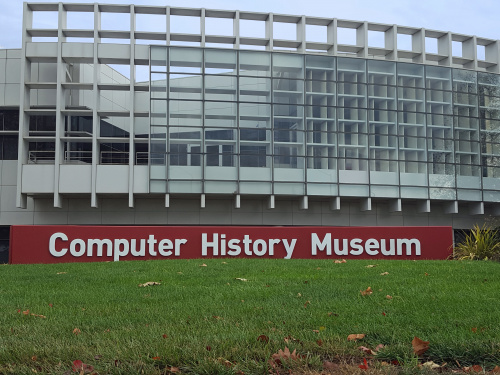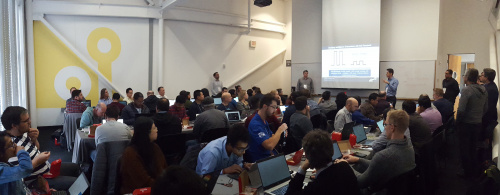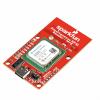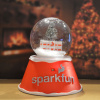Don't forget, we've got new deals live today for our Week of Deals sale. Stock up for 2020 projects and find your last-minute gifts, all in one place!
Last week, SparkFun CTO Kirk and I headed out to the Computer History Museum in Mountain View, CA, to take part in the first ARM AIoT Dev Summit. If you’re not yet familiar with the term, AIoT, or Artificial Intelligence of Things, is a combination of AI and IoT in order to achieve more efficient and smarter connected technologies. The conference included a great array of keynote speakers, including Simon Segars, CEO of ARM; Massimo Banzi, co-founder and CTO of Arduino; and Pete Warden, Google’s Lead Engineer for the TensorFlow AI and TinyML projects. Workshops and tech sessions included things like "Privacy-Focused Voice AI in Intelligent Robotics," "Getting Started with a Self-Driving RC Car" (using only computer vision and deep learning), and "AI Workflow for Large Scale Deployment of Far-Edge ML devices."
Quick age test - how many items on display here have you owned?
We met some great people and learned a lot, but the main reason we were there was to lead a workshop on "Low-Power AI and Machine Learning," where we showed attendees how to create a magic wand. Working with Pete Warden we made some advances with the SparkFun Edge Board, and simplified the process by building an Arduino core for the board. We lead a full class of fifty-five participants, and while almost everyone was able to finish all of the examples before class ended, even the few who weren’t claimed to have had a great time learning and said they were looking forward to working more with the board when they got home.
It was standing room only for our Build Your Own Harry Potter Wand with TensorFlow workshop.
If you have an Edge board, or are thinking of picking one up to start dabbling in machine learning and AI, I’ve put together some steps and some links to help you get more from your board using the Arduino IDE, and to teach you how to start training the board on your own.









